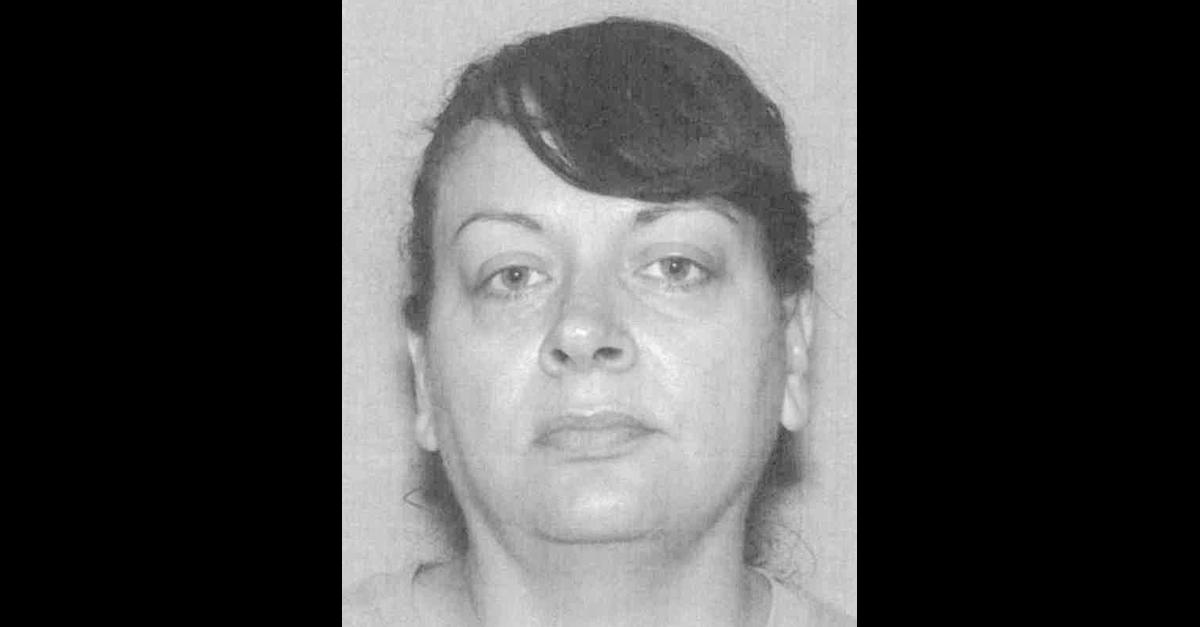
Krisinda Ann Bright courtesy of Beaver County, Pennsylvania District Attorney
A Pennsylvania woman accused of fatally shooting her two children in the head earlier this year pleaded not guilty to murder charges at an arraignment on Wednesday. Prosecutors are seeking her execution in a state that put a moratorium on the death penalty more than half a decade ago.
Krisinda Ann Bright, 58, formally pleaded not guilty to two charges of first-degree murder for the February deaths of kids, 16-year-old Jeffrey “JJ” Bright and 22-year-old Jasmine Cannady, local news outlets reported. JJ was a transgender boy and Jasmine was non-binary.
Friends will gather tonight to remember Jasmine Cannady and Jeffery Bright. The two siblings were shot and killed inside of their Ambridge home. https://t.co/daoSUN8vA0 pic.twitter.com/KTNQATIH2i
— Sarafina James (@SarafinaWPXI) February 23, 2021
The plea was entered a week after prosecutors with the Beaver County District Attorney’s Office notified Bright’s attorney that they would be seeking the death penalty if she is tried and found guilty.
As previously reported by Law&Crime, Bright was arrested in February after police say she used a handgun to shoot and kill her children, then left the unloaded gun on her dining room table, called 911 to confess, and waited on the front porch for officers to arrive at her home on Maplewood Avenue in Ambridge. Upon arrival, officers asked Bright if she was bleeding. She allegedly said she wasn’t, explaining to police that the blood on her hands, arms, and clothing was from her slain children.
According to a criminal complaint, Bright waived her Miranda rights in writing and agreed to speak with the police in an interview room. The documents say Bright admitted to shooting Cannady while the young woman was lying in bed upstairs. She then said she went downstairs, pointed her gun at JJ and pulled the trigger; however, the gun didn’t fire.
JJ then pleaded with his mother, saying, “[p]lease don’t shoot[;] I’m gonna call the police,” per the complaint.
But the complaint says Bright told police she “fixed” the gun soon thereafter and shot JJ in the face. When she realized JJ wasn’t dead, she went back upstairs, got another gun, and again shot JJ “in the head because she didn’t want [JJ] to suffer,” the complaint document says.
Crime scene investigators found both victims with apparent gunshot wounds to the face and head.
The Pittsburgh Post-Gazette reported that prosecutors decided to seek the death penalty due to the aggravating factors presented by Bright’s alleged crime, mainly, that under state law a person “who commit[s] murder either before or at the time of another murder” is subject to capital punishment.
While a defendant’s mental health is a mitigating factor in death penalty cases, District Attorney David Lozier on Wednesday said his office believes Bright was “fully aware of what she was doing and there was no evidence of severe mental distress at the time,” per the Post-Gazette.
Lozier added that Bright’s statement to police was “very conscious and knowing.”
“That [statement] we were aware of, and we were aware informally of the psychiatric history, but it did not appear to alter whether she was aware of what she was doing and planning,” Lozier said, noting that obstacles to pursuing a capital case still exist.
“The information we had regarding her mental health history and her veteran status was taken into account, but we don’t have access to her mental health records as a matter of law,” he added. “Only she can give us access to those records, and she has not done that yet.”
Another hindrance to putting Bright to death if she’s found guilty is the moratorium on capital punishment signed by Gov. Tom Wolf (D) in 2015. The state of Pennsylvania also has not killed a convict since 1999.
Bright’s next court appearance is currently scheduled for Jan. 10. Her attorneys are scheduled to meet with prosecutors in November.
[image via Beaver County, Pennsylvania District Attorney’s Office]